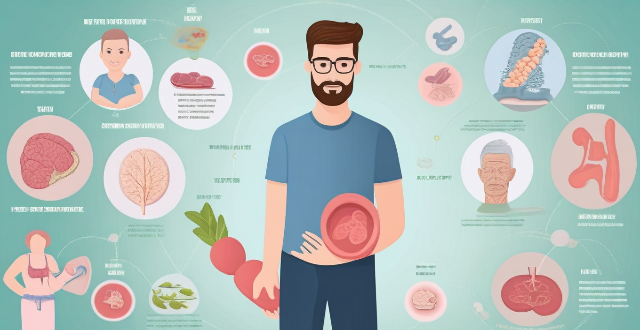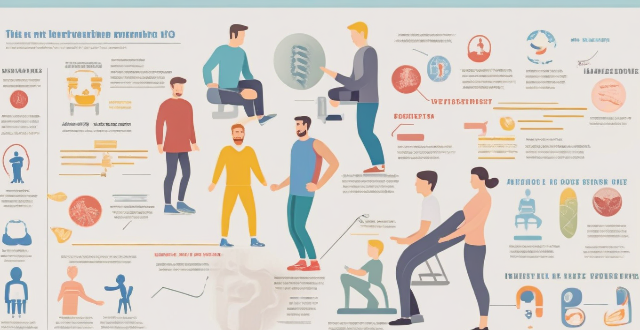Mental Improved

Is there a connection between sports and improved mental well-being ?
The relationship between sports and improved mental well-being is evident in numerous studies, indicating that engaging in physical activities significantly contributes to an individual's overall psychological well-being. This connection can be analyzed from various angles, including physiological responses, social interactions, personal development, and the role of subjective class identity and health. Physiological responses to sports include endorphin release and stress reduction, while social interactions provide opportunities for teamwork and belongingness. Personal development through sports enhances self-esteem and discipline. The mediating roles of class identity and health also play a part in this relationship. Overall, sports participation positively affects individuals' subjective well-being through various mechanisms, enhancing their mental health and overall quality of life.

What are the benefits of participating in sports for teenagers' mental health ?
Participating in sports can have numerous benefits for teenagers' mental health, including improved self-esteem and confidence, reduced stress and anxiety, enhanced social skills and relationships, and improved sleep quality. Encouraging teenagers to engage in sports can be an effective way to support their overall mental well-being and promote healthy development during adolescence.

What is the relationship between sports participation and improved mental health from a public policy perspective ?
The relationship between sports participation and improved mental health is complex and multifaceted, involving considerations of individual well-being, societal benefits, economic implications, and governmental responsibilities. Regular exercise through sports can lead to better physical health, which positively impacts mental health by releasing endorphins and reducing stress. Social interaction promoted by team sports and community building through sports events enhances social support networks crucial for mental health. From a societal perspective, promoting sports participation can serve as a preventive measure against mental health disorders, potentially reducing healthcare costs and improving educational outcomes. Economically, a healthier workforce and tourism opportunities from sports events can boost productivity and local economies. Governments have responsibilities in funding sports facilities, integrating sports into education, and running public awareness campaigns. Overall, fostering sports participation through supportive policies can significantly improve public mental health while offering broader societal and economic advantages.

Is there a link between exercise and improved self-esteem ?
This topic summary explores the relationship between exercise and self-esteem, explaining how regular physical activity can boost mental health and improve one's perception of their own worth. It discusses the types of exercise, their benefits on mental health, and evidence from research supporting the positive correlation between exercise and self-esteem. The conclusion emphasizes the importance of incorporating exercise into one's routine to enhance self-esteem.

How does exercise contribute to mental rejuvenation ?
Exercise plays a crucial role in mental rejuvenation by releasing endorphins, improving blood flow, enhancing neuroplasticity, reducing stress, improving sleep quality, facilitating social interaction, and boosting self-esteem. Regular physical activity can significantly contribute to improved cognitive functions, emotional stability, and overall mental well-being.

Are there specific exercises that help improve mental health ?
Exercises like yoga, meditation, aerobic exercise, resistance training, MBSR, and Tai Chi can help improve mental health by reducing stress, anxiety, and depression symptoms while promoting relaxation, self-awareness, and social interaction.

How does exercise improve mental health ?
The article discusses how exercise improves mental health by reducing symptoms of depression and anxiety, improving mood, and enhancing cognitive function. It highlights the release of endorphins, regulation of neurotransmitters, stress reduction, increased energy levels, better sleep quality, enhanced self-esteem, improved memory and attention, reduced risk of cognitive decline, and promotion of neuroplasticity as mechanisms through which exercise positively impacts mental well-being. The conclusion emphasizes the importance of regular physical activity for overall well-being and advises consulting a healthcare professional before starting any new exercise program.

How do competitive sports impact mental health ?
Competitive sports have a significant impact on mental health, with both positive and negative effects. Positive effects include increased self-esteem and confidence, improved social skills and teamwork, stress reduction and relaxation, and goal setting and achievement. Negative effects include pressure to perform, fear of injury, burnout and overtraining, and unhealthy weight management practices. It is essential for athletes to manage the pressures associated with competition and prioritize their mental and physical health above all else. Seeking support from coaches, teammates, friends, and family members can also help athletes navigate the challenges of competitive sports and maintain good mental health.

How does physical exercise contribute to mental well-being ?
The text discusses how physical exercise contributes to mental well-being by releasing endorphins, boosting self-esteem, improving sleep quality, facilitating social interaction, and enhancing cognitive function. Regular physical activity can lead to long-term improvements in mental health, including reduced stress, anxiety, and depression, as well as better emotional stability and overall mood. Engaging in group sports or exercise classes provides opportunities for social interaction, which is essential for mental well-being, while achieving fitness goals can boost self-esteem and self-confidence. Better sleep patterns from exercise can lead to improved cognitive function and emotional regulation, while enhanced cognition may aid in the management of mental health conditions. Incorporating regular physical activity into your routine can promote mental well-being through these various mechanisms.

What is the importance of mental health in overall personal well-being ?
The text discusses the importance of mental health in overall personal well-being. It explains how good mental health can lead to better physical health, emotional stability, healthy social relationships, workplace productivity, and an improved quality of life. The article emphasizes the need for prioritizing mental health by seeking professional help when needed, practicing self-care, and engaging in activities that promote good mental health.

In what ways does mental health support impact overall women's health ?
This text discusses the importance of mental health support for women's overall health, highlighting its impact on physical health, emotional well-being, relationships, and work performance. It emphasizes that good mental health can reduce the risk of chronic diseases, improve sleep quality, and help manage pain. Additionally, it mentions how mental health support can enhance emotional well-being by reducing stress, improving mood, and increasing resilience. The text also points out that mental health support can strengthen relationships through improved communication, better emotional regulation, and greater empathy. Lastly, it notes that mental health support can enhance work performance by improving focus, reducing absenteeism, and increasing job satisfaction.

Can physical activity improve mental health ?
Physical activity has been found to significantly improve mental health by enhancing self-efficacy and stress self-management skills. Research shows that engaging in physical activities can lead to a sense of accomplishment, boosting an individual's confidence in their abilities, which in turn fosters better stress management and contributes to enhanced mental well-being. This relationship is particularly important for adolescents, a demographic vulnerable to mental health challenges. Future research should focus on identifying specific types of physical activities that have a greater potential to enhance these skills, guiding the development of targeted interventions aimed at improving mental health through physical activity.

How can educational psychology aid in addressing students' mental health issues ?
Educational psychology can aid in addressing students' mental health issues by understanding the role of emotional intelligence, promoting a positive school climate, providing early intervention and support services, encouraging self-care and resilience, and facilitating collaboration between educators and mental health professionals.

What is the relationship between exercise and mental health ?
Exercise has a profound impact on mental health, enhancingExercise has a profound impact on mental health, enhancing reducing stress, improving sleep quality enhancing mood and cognitive function, reducing stress, improving sleep quality, and fostering social interaction. Regular physical activity stimulates the release of neurotransmitters like endorphins, serotonin, and dopamine, leading to improved mood, relaxation, and better cognitive abilities. It also helps manage cortisol levels, promotes deeper sleep, and provides emotional support through group activities, ultimately contributing to overall mental well-being.

What are the psychological benefits of participating in sports ?
Participating in sports can have numerous psychological benefits that extend beyond physical health. Here are some of the key advantages: - **Improved Mood and Reduced Stress**: Boosts endorphins, decreases cortisol levels, and helps to lower stress. - **Enhanced Self-Esteem and Confidence**: Achievement and mastery in sports boost self-esteem, while social interaction increases confidence. - **Better Sleep Quality**: Regular exercise leads to physical fatigue and relaxation, improving sleep patterns. - **Increased Resilience and Mental Toughness**: Overcoming adversity in sports builds resilience, while goal-oriented pursuits foster mental toughness. - **Social Support and Connection**: Teamwork and camaraderie provide a network of support, while shared experiences create bonds and friendships. - **Improved Cognitive Function**: Studies suggest regular exercise can lead to increased brain volume and improved cognitive function. - **Emotional Regulation and Coping Mechanisms**: Sports provide an outlet for expressing and managing emotions like anger or frustration, and athletes learn to cope with high-pressure situations. - **Positive Addiction and Avoidance of Unhealthy Habits**: Sports can become a positive addiction, replacing less healthy habits, and require time management, reducing idle time that could lead to unhealthy behaviors.

What role does physical exercise play in boosting mental focus ?
Physical exercise is not only beneficial for our physical health, but it also plays a crucial role in enhancing mental focus. Here's how: 1. Release of Endorphins: Regular exercise triggers the release of endorphins, which can help reduce stress and anxiety, leading to improved mental clarity and focus. 2. Increased Blood Flow to the Brain: Engaging in physical activities increases blood flow to the brain, delivering more oxygen and nutrients. This increased blood flow can help improve cognitive function, memory, and overall mental sharpness. 3. Better Sleep Quality: Exercise has been shown to promote better sleep quality and duration. Adequate sleep is essential for maintaining mental focus and concentration throughout the day. 4. Reduction of Stress and Anxiety: Physical activity helps lower levels of the body's stress hormones, such as cortisol. By reducing stress and anxiety, exercise allows individuals to maintain a clearer mind and stay focused on tasks at hand. 5. Enhanced Self-Confidence and Mood: Regular exercise can boost self-esteem and confidence, leading to a positive outlook on life. A positive mindset contributes to better mental focus and productivity. 6. Improved Cognitive Function: Studies have found that regular physical exercise can lead to improvements in various aspects of cognitive function, including attention, memory, and executive functions. These cognitive enhancements directly contribute to increased mental focus and concentration.

What is the relationship between physical activity, mental health, and peace ?
The text discusses the interconnected relationship between physical activity, mental health, and peace. Regular physical activity can reduce anxiety and depression, improve mood, and enhance cognitive function, which in turn fosters emotional stability, clear thinking, and empathy - qualities necessary for maintaining peace. Sports and group activities promote teamwork, respect for others, and community building, contributing to peaceful interactions. Therefore, understanding these connections can lead to conscious choices that improve individual lives and contribute to a more peaceful world.

Does exercise have a greater impact on mental health than meditation ?
Exercise and meditation are both beneficial for mental health, but it is difficult to determine which has a greater impact. Exercise can reduce stress and anxiety, improve self-esteem and cognitive function, and promote better sleep. Meditation can also reduce stress and anxiety, improve emotional regulation and self-awareness, and promote positive thinking. The effectiveness of each practice may vary depending on individual preferences and circumstances. It is important to choose a practice that suits your needs and engage in it regularly for optimal results.

What are the long-term effects of youth sports on mental health ?
Youth sports can have both positive and negative effects on mental health, including increased self-esteem, improved social skills, and reduced stress levels. However, pressure to perform, overtraining, injuries, bullying, and dependence on sports for identity can also have negative impacts. It is important for adults involved in youth sports to be aware of these potential effects and take steps to foster the positive ones while mitigating any negative impacts.

How does mental toughness impact athletic performance at a competitive level ?
In summary, this article explores the impact of mental toughness on athletic performance at a competitive level. It highlights the benefits of mental toughness, including enhanced focus and concentration, improved resilience and coping mechanisms, increased confidence and self-belief, and better decision making under pressure. The article also provides practical tips for developing these essential skills through mindfulness techniques, visualization, positive self-talk, scenario training, and continuous self-improvement. Overall, mental toughness is crucial for athletes to perform at their best and achieve success in their chosen sport.

How can older adults benefit from exercise in terms of mental health ?
Exercise is crucial for maintaining and improving mental health in older adults. It enhances mood, reduces depression symptoms, improves cognitive function, manages stress, and provides opportunities for social interaction. Incorporating regular exercise can significantly promote overall well-being in the aging population.

What are the long-term effects of consistent exercise on mental health ?
Consistent exercise has a multitude of long-term effects on mental health, including improved mood, reduced anxiety and stress, better sleep, increased self-esteem, enhanced cognitive function, and social interaction. These benefits make regular physical activity a powerful tool in maintaining good mental health.

How does team sports impact mental health compared to individual sports ?
This article explores how team sports impact mental health compared to individual sports. It highlights the social support and belongingness provided by team sports, which can reduce feelings of isolation and loneliness. The article also discusses how team sports promote accountability and responsibility, helping individuals develop discipline and self-control. Additionally, it emphasizes the importance of goal setting and achievement in team sports, which can boost self-esteem and confidence. Overall, the article concludes that team sports have a significant impact on mental health compared to individual sports due to their social aspect.

What are the benefits of including mental health and stress management in personal safety training programs ?
Incorporating mental health and stress management into personal safety training programs can improve physical health, enhance mental well-being, boost work performance, increase job satisfaction, and reduce costs for organizations. By managing stress levels, individuals can achieve better sleep quality, reduced anxiety and depression, increased resilience, improved relationships, and enhanced career development. Organizations can benefit from lower healthcare expenses and decreased turnover rates by promoting a positive work environment through mental health and stress management training.

What is the psychology behind the "runner's high" and its impact on mental health ?
The "runner's high" is a state of euphoria or pleasure experienced during or after intense physical activity, such as running. It is linked to the release of endorphins in the brain, which act as natural painkillers and mood enhancers. The psychology behind this phenomenon involves several factors, including endorphin release, stress reduction through lowering cortisol levels, and social interaction. The "runner's high" has positive impacts on mental health, such as reduced anxiety and depression, improved self-esteem, better sleep quality, and increased resilience. By understanding these factors and incorporating regular physical activity into our lives, we can improve our mental health and overall well-being.

What impact does participation in sports have on the mental health and well-being of marginalized groups ?
This article explores the impact of sports participation on mental health and well-being, particularly for marginalized groups. It highlights the physical health benefits such as improved cardiovascular health, weight management, and immune system strengthening. Mental health benefits include reduced stress and anxiety, increased self-esteem, improved sleep, and enhanced cognitive function. The article also emphasizes the importance of providing accessible sports opportunities and promoting inclusivity to reduce stigma surrounding mental health issues, build resilience, and foster strong communities among marginalized groups.

In what ways can sports education improve mental health and well-being ?
Sports education plays a crucial role in enhancing mental health and overall well-being by offering numerous benefits that contribute to the development of a healthy mind and body. It helps reduce stress, improve self-esteem, promote better sleep, provide opportunities for social interaction, teach goal setting, time management, resilience and perseverance, and develop mindfulness and focus. By promoting physical activity, social interaction, goal setting, time management, resilience, and mindfulness, sports education can help individuals develop the skills they need to lead healthy, fulfilling lives.

What are the effects of pregnancy and motherhood on women's mental health ?
The article discusses the impact of pregnancy and motherhood on women's mental health, highlighting both positive and negative effects. Positive effects include increased responsibility, improved social support, and enhanced emotional connection with the child. Negative effects may involve postpartum depression, anxiety disorders, and trauma-related disorders. Coping strategies such as seeking professional help, building a support network, and practicing self-care are recommended to manage any mental health challenges that arise during this period.

How can mental training improve physical abilities in athletes ?
Mental training is crucial for athletes as it enhances physical abilities by improving focus, managing stress, and promoting a positive mindset. Techniques such as visualization, self-talk, and emotional intelligence contribute to better performance.

In what ways do sports promote mental and emotional growth in individuals ?
The article discusses the role of sports in promoting mental and emotional growth. It mentions that participating in sports can improve self-esteem, confidence, social skills, resilience, perseverance, time management, organizational skills, and stress reduction techniques. The benefits of sports extend beyond the athletic field and contribute to overall personal development and success in various aspects of life.